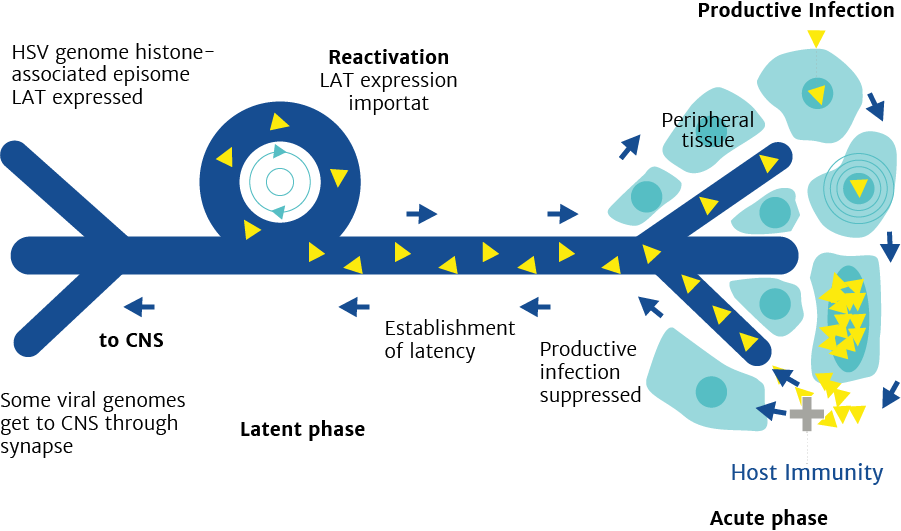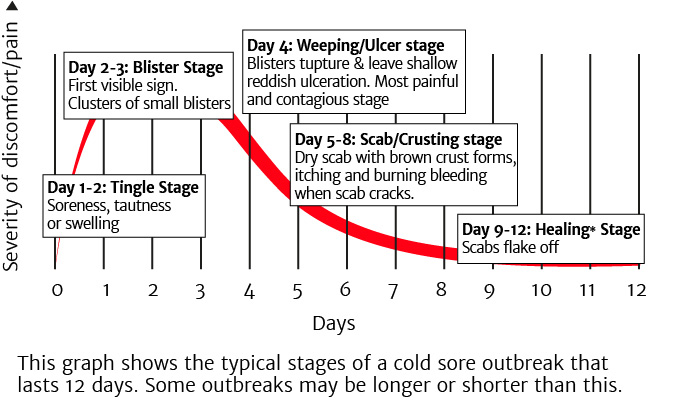Cold sores (Herpes Labialis) are a very common viral condition affecting 3.7 billion people in the world.
2 in 3 people under age 50 have the herpes simplex 1 virus (HSV1) which causes cold sores. Highly contagious, it is spread from person-to-person though close contact such as kissing, sharing utensils or make-up.
Once infected the herpes virus lies dormant in the body and as a result is a lifelong condition. The word ‘herpes’ derives from the Latin meaning to creep. When the virus is triggered, it literally ‘creeps’ back from its dormant phase along the nerve, to the surface of the skin
1 in 3 people suffer repeated outbreaks. 1 in 10 experience at least 6 painful outbreaks per year.
Phytovir’s topical wound healing products heal within 7 days while our antiviral treatments are proven to prevent future outbreaks.


